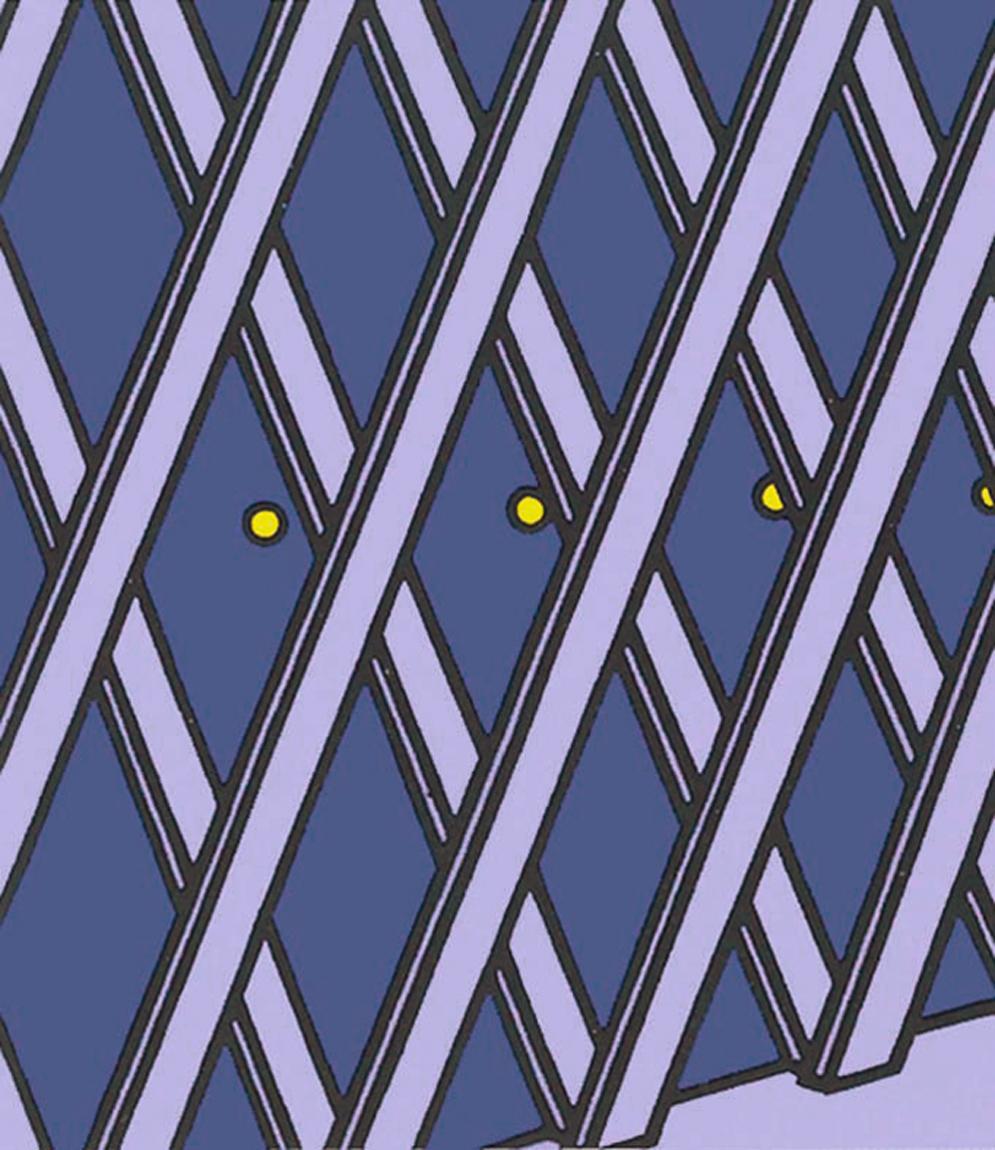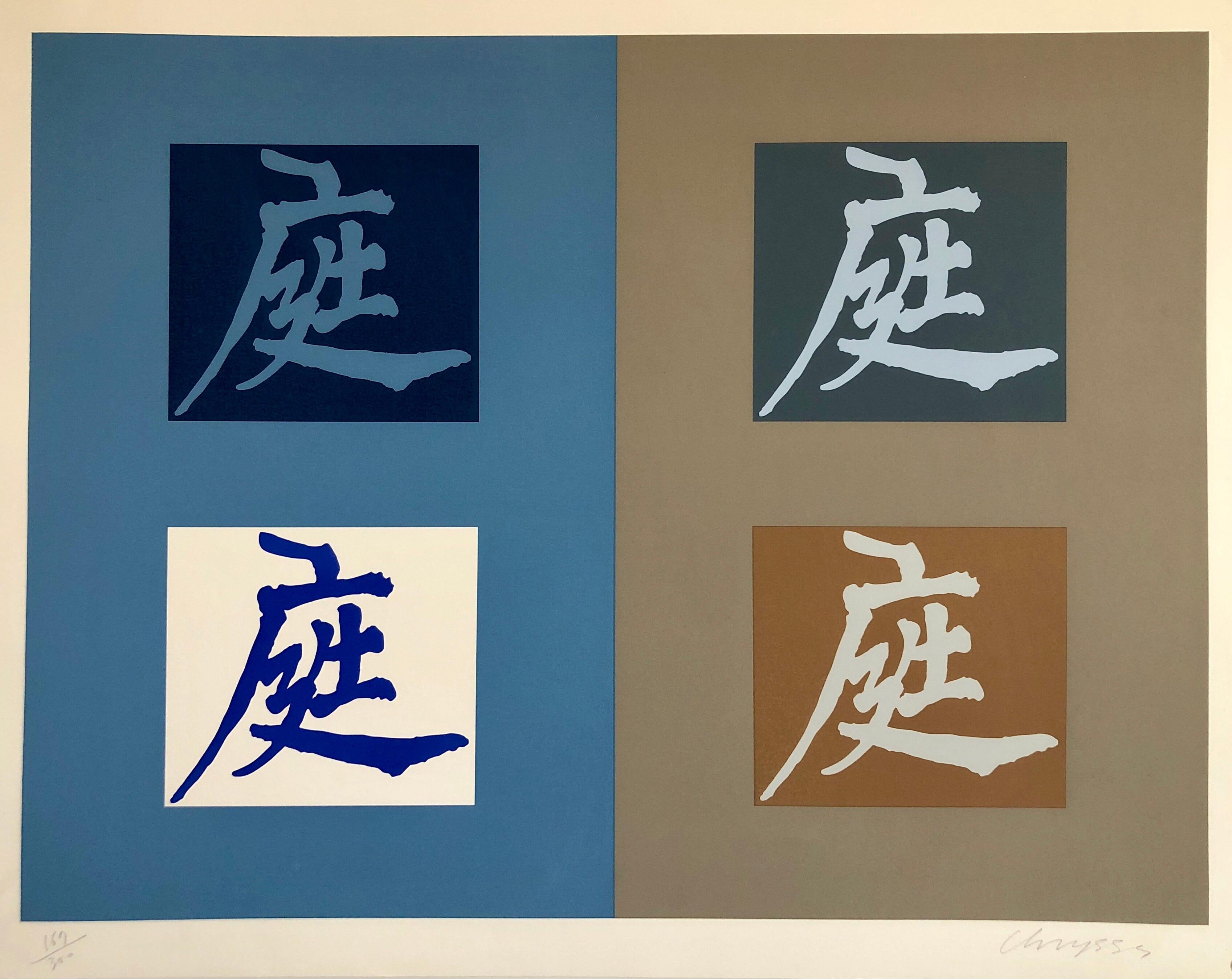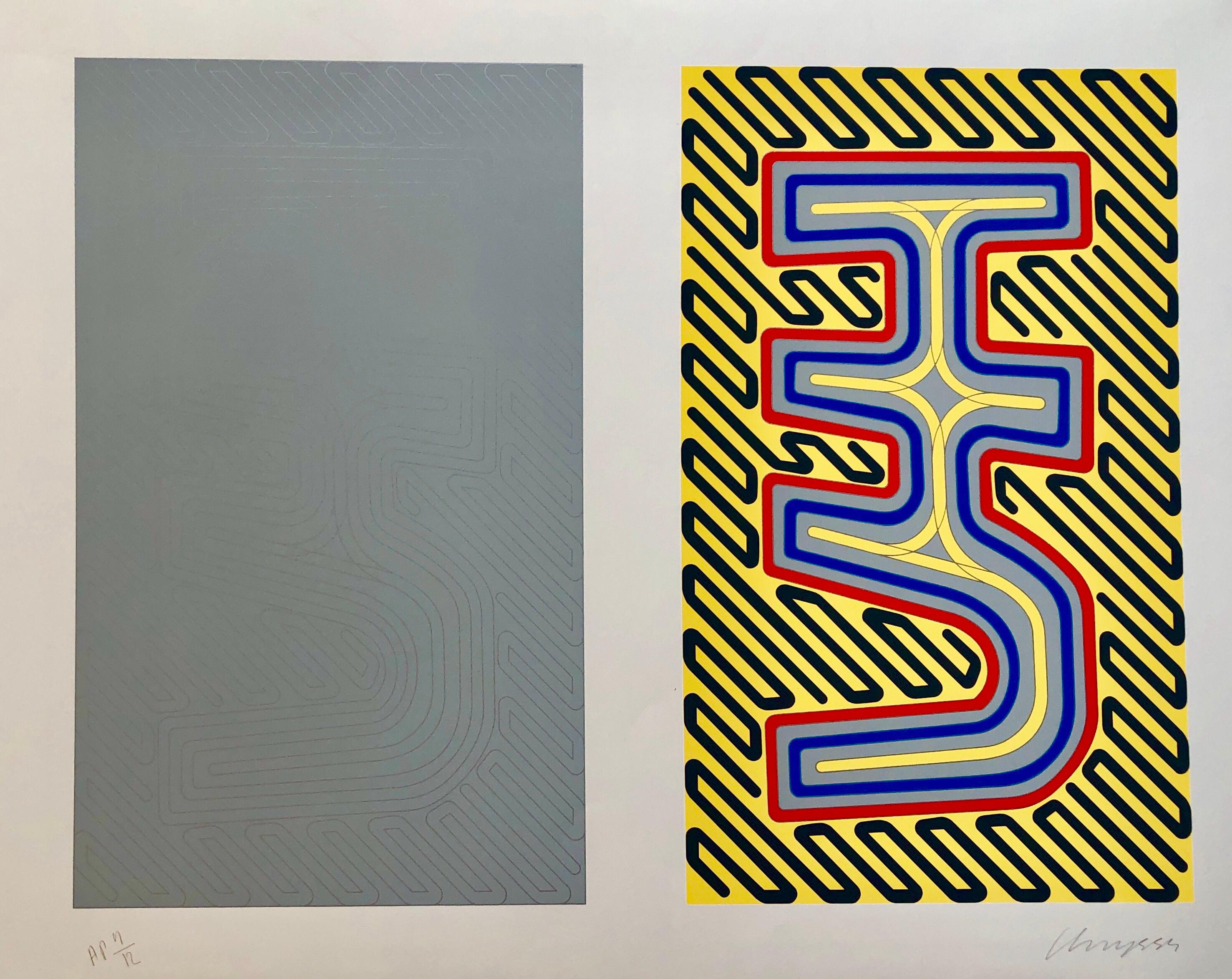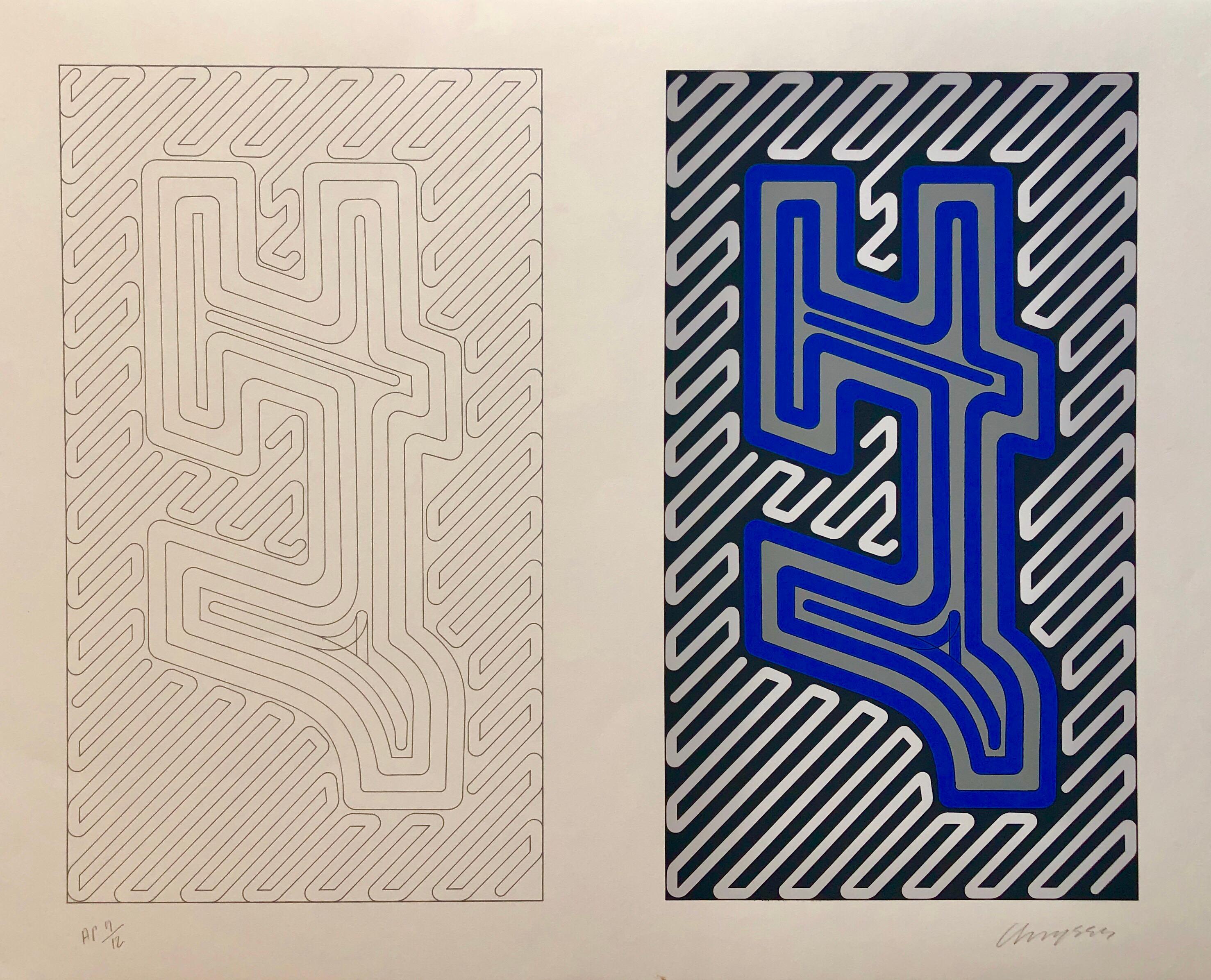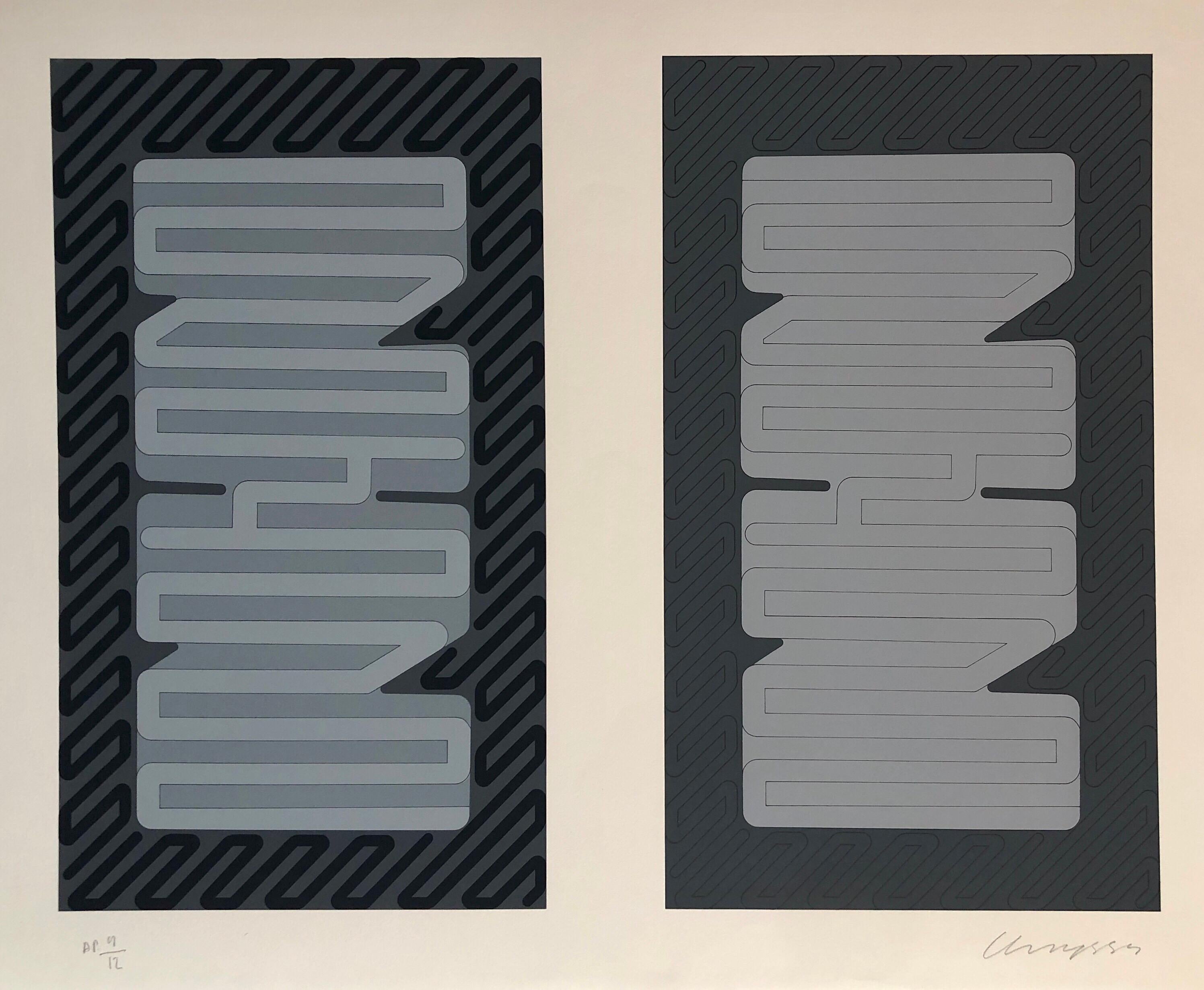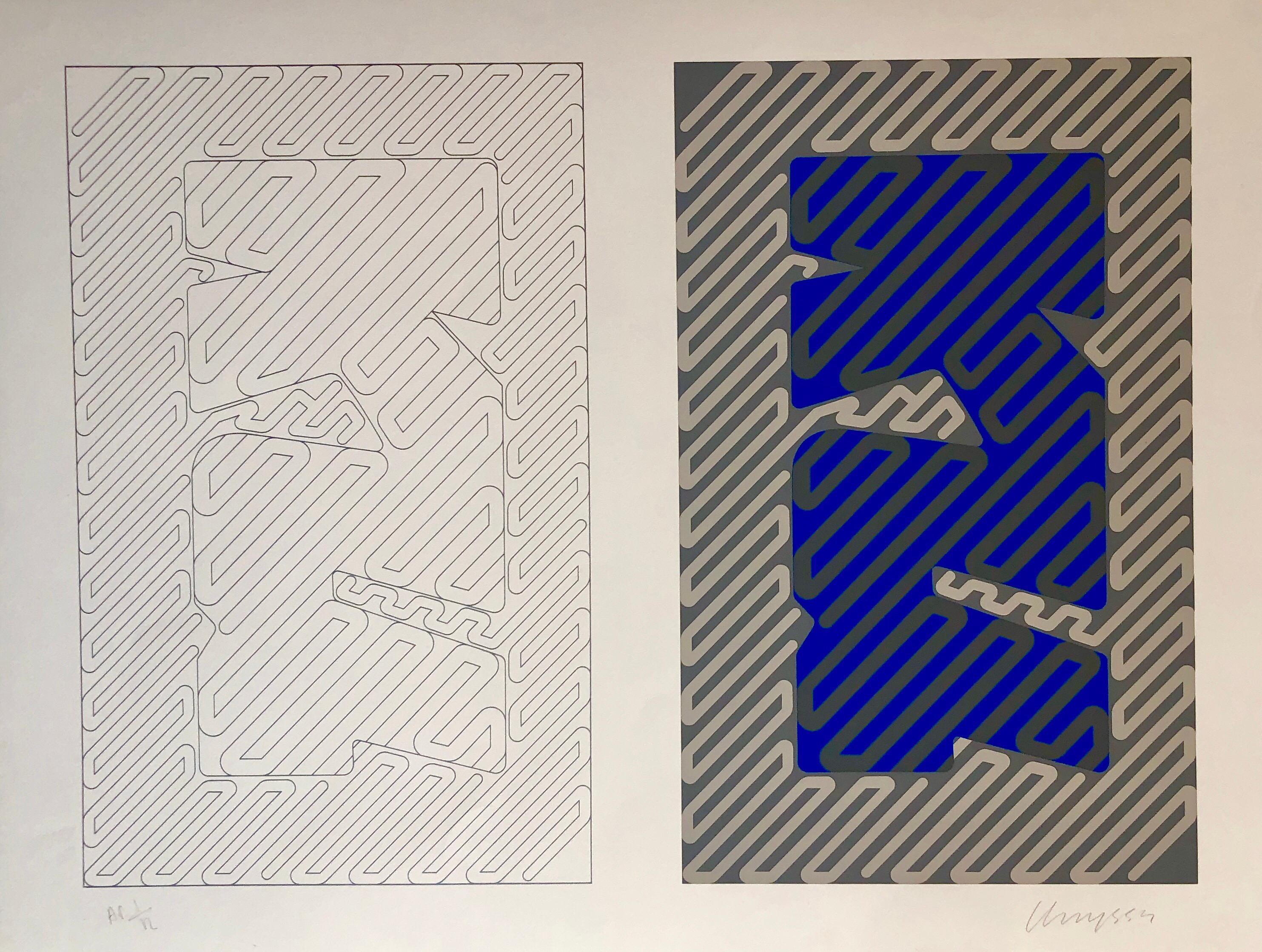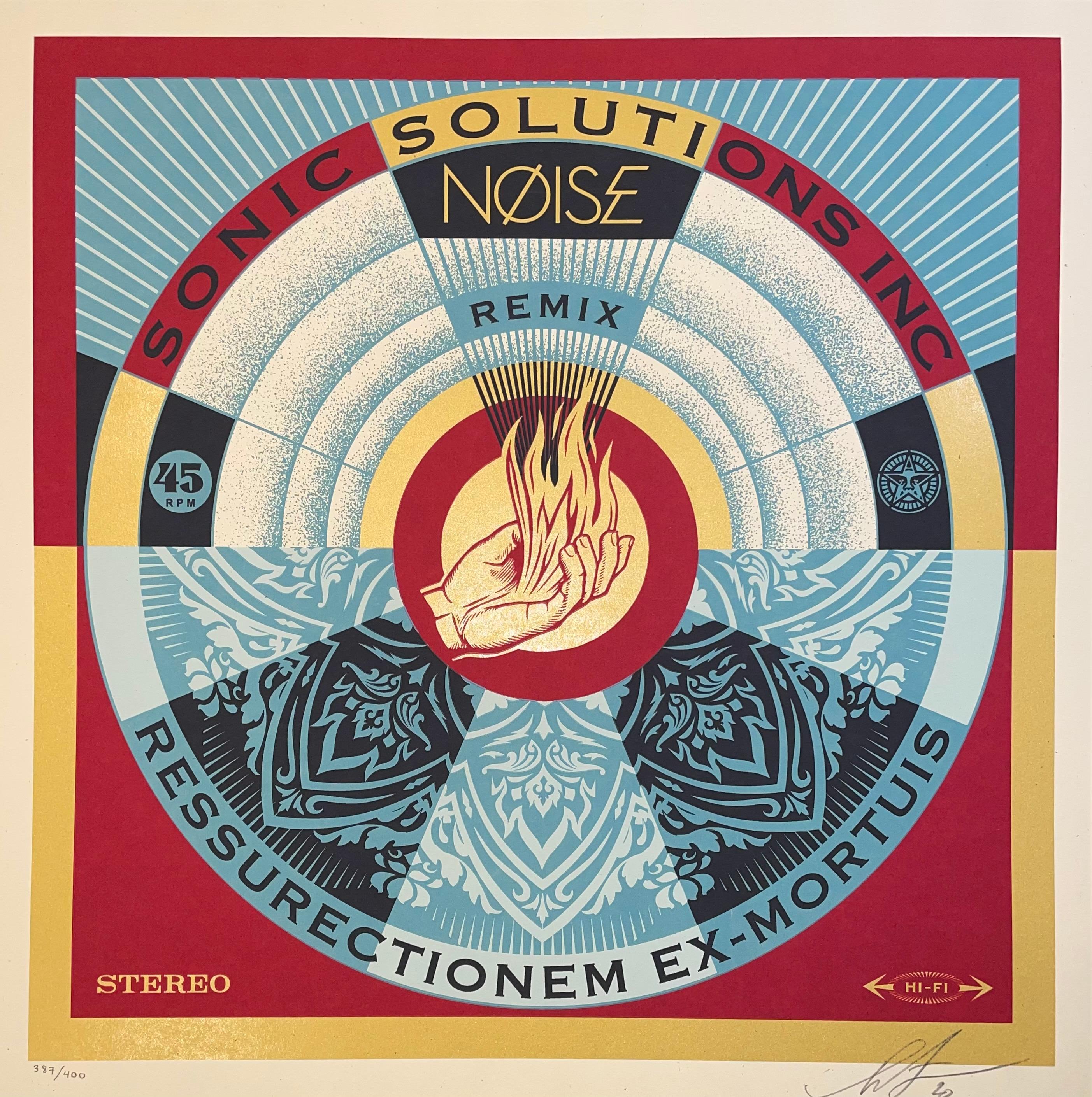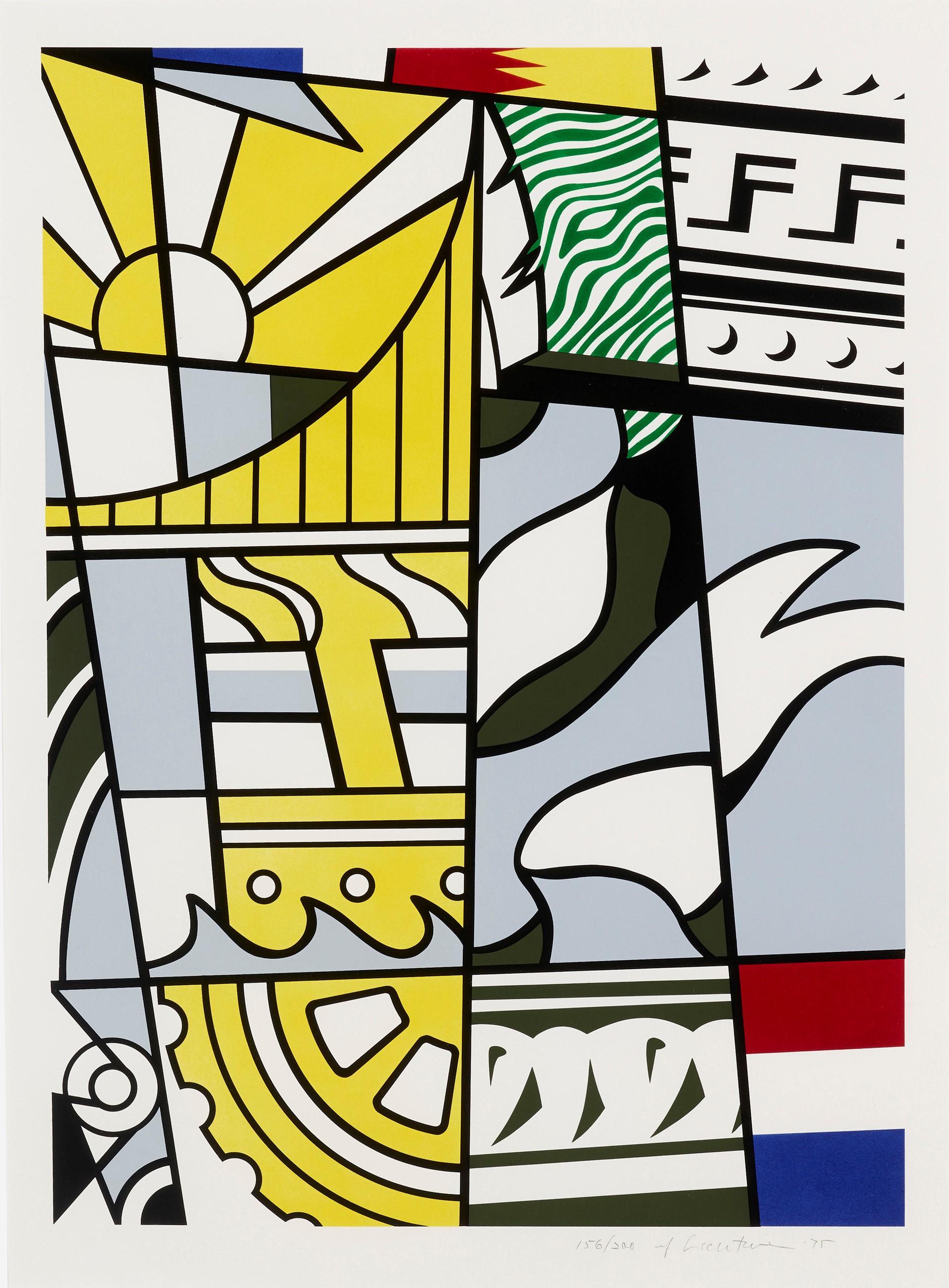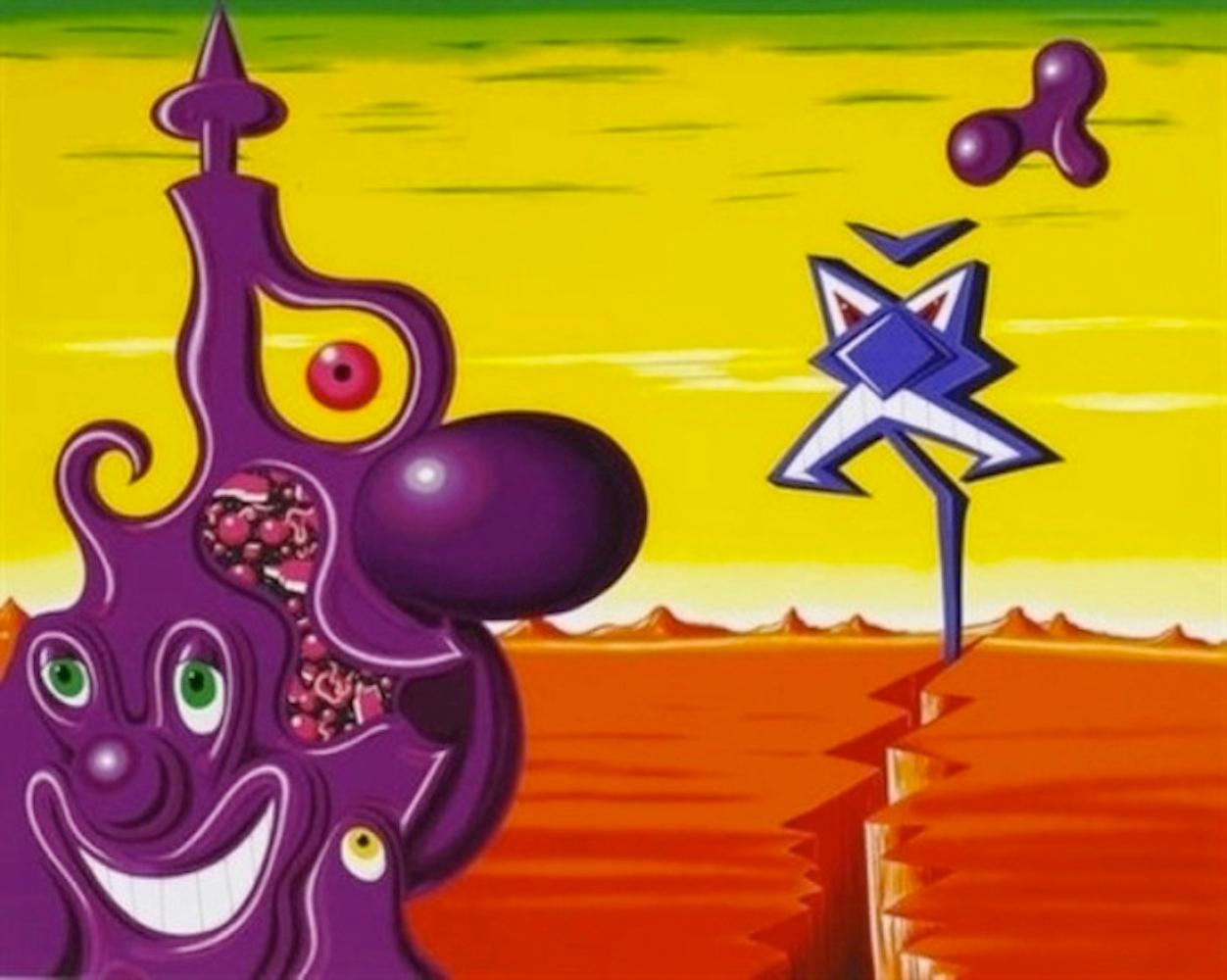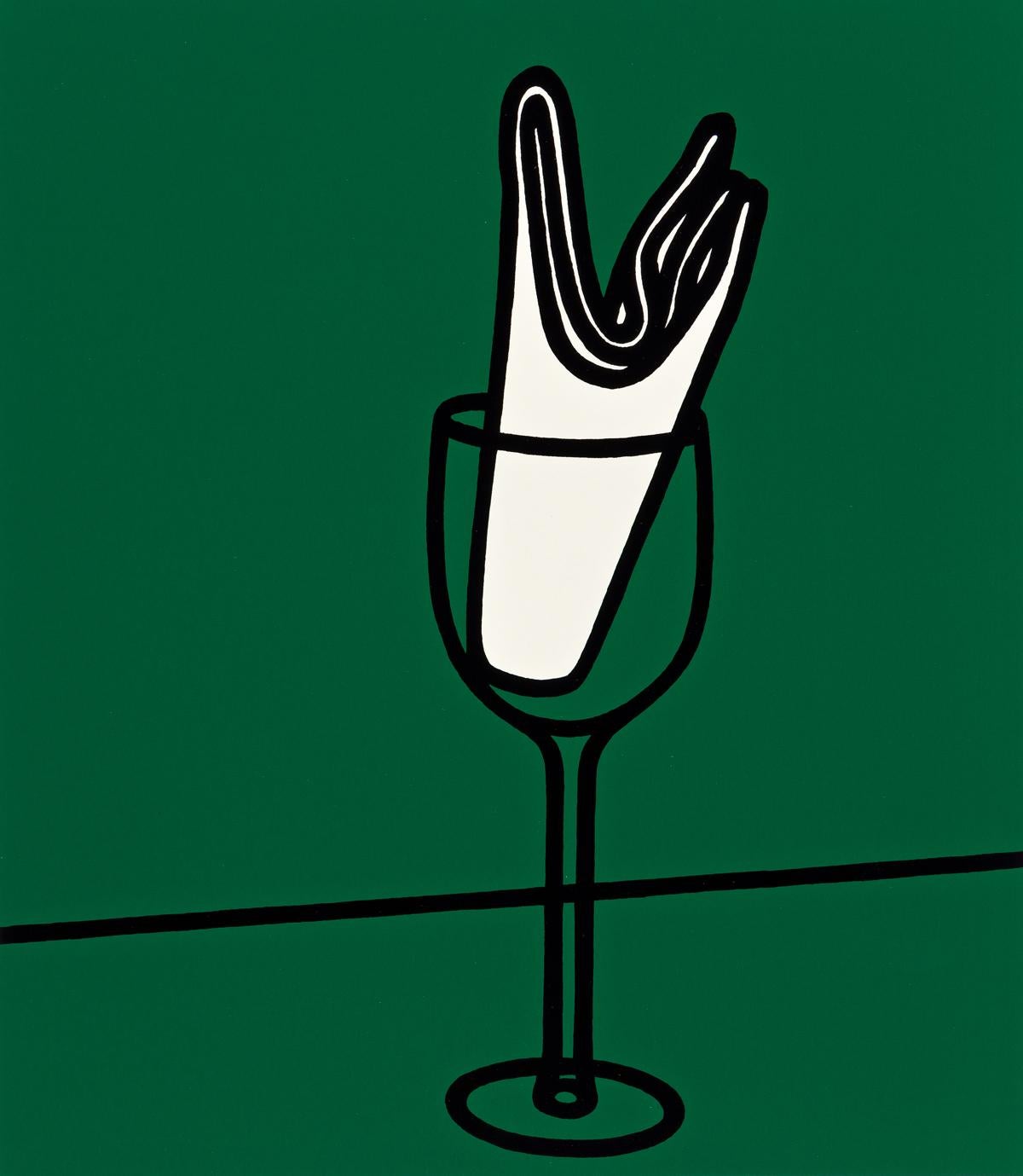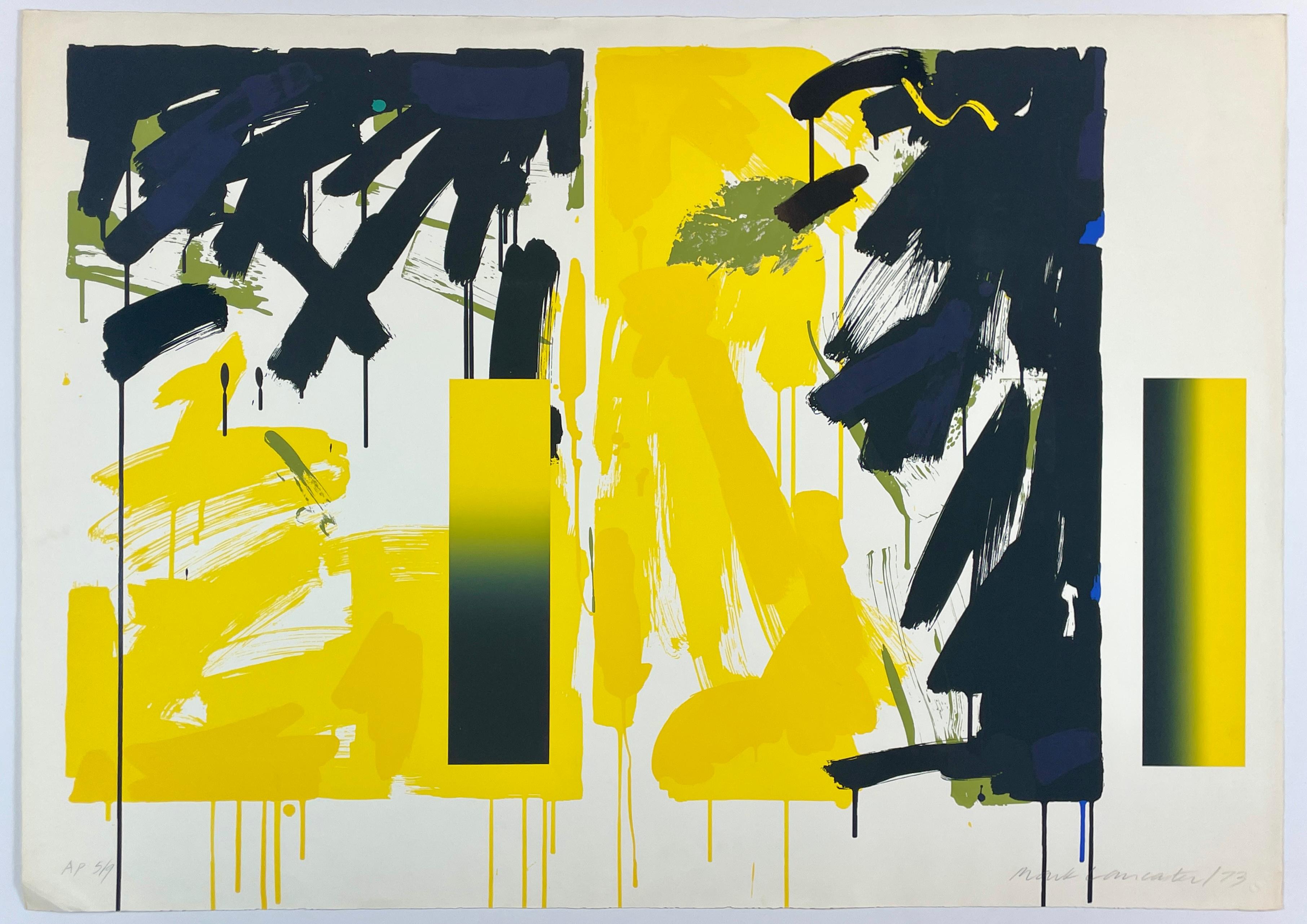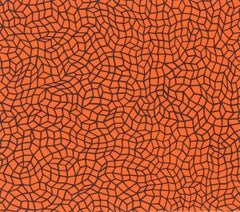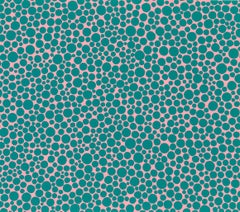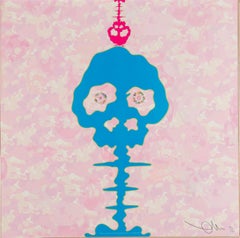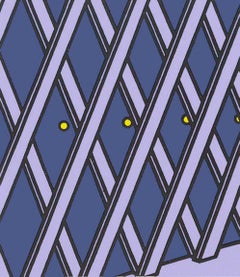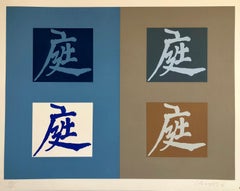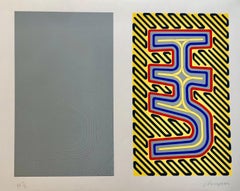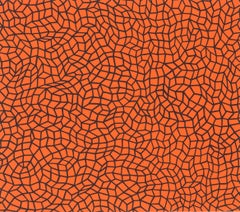
Infinity Nets (1986). Screenprint. Limited Edition 51/100 by Yayoi Kusama ABE 95
View Similar Items
Yayoi KusamaInfinity Nets (1986). Screenprint. Limited Edition 51/100 by Yayoi Kusama ABE 951986
1986
About the Item
- Creator:Yayoi Kusama (1929, Japanese)
- Creation Year:1986
- Dimensions:Height: 20.28 in (51.5 cm)Diameter: 14.34 in (36.4 cm)
- Medium:
- Movement & Style:
- Period:
- Condition:Overall in very good condition.. One soft crease in a corner (as described in the detailed image).
- Gallery Location:Hong Kong, HK
- Reference Number:Seller: YK-0081stDibs: LU1545210725542
Yayoi Kusama
Widely inspirational and innovative artist Yayoi Kusama has a body of work that is exceptionally varied, ranging from graphic prints and paintings to polka-dot pumpkin sculptures, hypnotic collages, large-scale installations and fashion design.
Even if you don’t know her name, you’ve likely experienced Kusama’s art — or have seen it on Instagram. Her soft sculptures and dazzling “Infinity Mirrors” are the stuff of selfie-takers’ dreams, but Kusama’s impressive decades-long career certainly holds far more cachet than it does fodder for today’s aspiring social-media influencers.
Born in Matsumoto, Japan, in 1929, Kusama has worked with her signature polka dots since the age of 10, when she began to experience vivid hallucinations and claimed that patterns and dots were moving around her, swallowing up everything in view. She started to incorporate them into her paintings as a child. Kusama saw circular forms and nets on every surface and became especially fascinated with the pebbles that lined the bottom of the creek near her childhood home. Her family was sternly opposed to her art and her mother physically abused Kusama and discouraged her at a very early age. She has suffered psychological turmoil her whole life and is vocal about her mental illness. Today, Kusama is a voluntary resident at a psychiatric facility in Tokyo, and she calls her work “art medicine.”
At the Kyoto School of Arts and Crafts, Kusama trained in Nihonga, a traditional style of Japanese painting that originated during the Meiji period. On advice she solicited from painter Georgia O'Keeffe, a pioneer of modernism in America whom she greatly admired, she subsequently moved to New York City in 1958. There, Kusama flourished, creating prescient sculptures and large-scale monochrome paintings that bridged current styles with minimalism, which hadn’t yet achieved any kind of prominence as an art movement. She pushed boundaries with her “Accumulations” series, which saw her transforming found furniture pieces into sexualized objects, as well as with an avant-garde staging of theatrical orgies on the street — both stemming from her anxieties about sex as well as an endeavor to make a feminist statement about patriarchal authority and sexism.
Kusama was captivated by Surrealists as well as the Abstract Expressionists and greatly influenced the Pop artists who followed, befriending such icons as Donald Judd — who called her work “the best paintings being done” — and Andy Warhol, with whom she exhibited and later accused of stealing her ideas. Kusama moved with ease through artistic circles and made a point to draw attention to her “otherness” as a Japanese woman by wearing kimonos to her openings.
In 2021, Kusama brought her floral and vegetal sculptures to the New York Botanical Garden and her works can be found in the collections of many of the world’s top museums, including the Museum of Modern Art in New York, the Centre Pompidou in Paris and the National Museum of Modern Art in Tokyo. She famously collaborated with Louis Vuitton in 2012, and she created a 34-foot-tall balloon for the Macy’s Thanksgiving Day Parade in Manhattan in 2019, becoming the first female artist to design a work for the event. In addition to her visual artwork, Kusama is a writer, publishing poetry, novels and an autobiography.
Find a collection of Yayoi Kusama art on 1stDibs.
- Dots Infinity (1986). Screenprint. Limited Edition 54/100 by Yayoi Kusama ABE 94By Yayoi KusamaLocated in Hong Kong, HKYayoi Kusama Dots Infinity (1986). Edition 53/100 Screenprint [2 screens, 2 colors] Signed, titled, dated and numbered 53/100 in pencil by the artist 28 x 32 cm [11 ¹/₃₂ x 12 ¹⁹/₃₂ ...Category
1980s Pop Art Abstract Prints
MaterialsScreen
- Dots Infinity (1986). Screenprint. Limited Edition 57/100 by Yayoi Kusama ABE 94By Yayoi KusamaLocated in Hong Kong, HKYayoi Kusama Dots Infinity (1986). Edition 57/100 Screenprint [2 screens, 2 colors] Signed, titled, dated and numbered 53/100 in pencil by the artist 28 x 32 cm [11 ¹/₃₂ x 12 ¹⁹/₃₂ ...Category
1980s Pop Art Abstract Prints
MaterialsScreen
- Bokan - camouflage pink. Limited Edition (print) by Takashi Murakami, signedBy Takashi MurakamiLocated in Hong Kong, HKBokan - camouflage pink, 2009 by Takashi Murakami Offset print, numbered and signed by the artist 19 11/16 × 19 11/16 in 50 × 50 cm Edition 71/300 About the Artist: Takashi Murakami is best known for his contemporary combination of fine art and pop culture. He uses recognizable iconography like Doraemon and cartoonish flowers and infuses it with Japanese culture. The result is a colorful body of work that takes the shape of paintings, sculptures and animations. In the 1990s, Murakami founded the Superflat movement in an attempt to expose the "shallow emptiness of Japanese consumeristic culture." The artist plays on the familiar aesthetic of mangas, Japanese-language comics, to render works that appear popular and accessible, all the while denouncing the universality and impersonality of consumer goods. Murakami has done collaborations with numerous brands and celebrities including Kanye West, Louis Vuitton...Category
Early 2000s Pop Art Figurative Prints
MaterialsOffset
- Deconstructed Homer (Pink). Giclée Print by Matt GondekBy Matt GondekLocated in Hong Kong, HKDeconstructed Homer, 2020 Open edition giclée fine art print on 320gsm Somerset museum smooth rag paper 30.3 x 45.9 cm 11 7/8 x 18 1/8 in Hand signed by the artist on the lower right...Category
2010s Pop Art More Prints
MaterialsGiclée
$2,400 Sale Price20% Off - Deconstructed Homer (Blue) Giclée Print by Matt GondekBy Matt GondekLocated in Hong Kong, HKDeconstructed Homer, 2020 Open edition giclée fine art print on 320gsm Somerset museum smooth rag paper 30.3 x 45.9 cm 11 7/8 x 18 1/8 in Hand signed by the artist on the lower right...Category
2010s Pop Art More Prints
MaterialsGiclée
$2,400 Sale Price20% Off - Broken Family, Limited Edition Giclée Print by Matt Gondek signed and numberedBy Matt GondekLocated in Hong Kong, HKBroken Family, 2020 by Matt Gondek Giclée fine art print, edition 93/100 60.3 x 47.5cm (not considering the frame) 23 ⁴⁷/₆₄ x 18 ⁴⁵/₆₄ (not considering the frame) Hand signed and num...Category
2010s Pop Art More Prints
MaterialsGiclée
$4,640 Sale Price20% Off
- "Moi je veux vivre monotone" by Patrick Caulfield, Screenprint, Pop Art, PurpleBy Patrick CaulfieldLocated in Köln, DE"Moi je veux vivre monotone" is from the series "Some poems by Jules Laforgue". Patrick Caulfied was deeply inspired by these poems and found to his very own depiction of these poems...Category
1970s Pop Art Abstract Prints
MaterialsScreen
- 1980's Large Silkscreen Chinese Characters Serigraph Pop Art Print ChinaBy Chryssa Vardea-MavromichaliLocated in Surfside, FLChryssa Vardea-Mavromichali (Greek: Χρύσα Βαρδέα-Μαυρομιχάλη; December 31, 1933 – December 23, 2013) was a Greek American artist who worked in a wide variety of media. An American art pioneer in light art and luminist sculpture widely known for her neon, steel, aluminum and acrylic glass installations, she has always used the mononym Chryssa professionally. She worked from the mid-1950s in New York City studios and worked since 1992 in the studio she established in Neos Kosmos, Athens, Greece. Chryssa was born in Athens into the famous Mavromichalis family from the Mani Peninsula. one of her sisters, who studied medicine, was a friend of the poet and novelist Nikos Kazantzakis. Chryssa began painting during her teenage years and also studied to be a social worker.In 1953, on the advice of a Greek art critic, her family sent her to Paris to study at the Académie de la Grande Chaumiere where Andre Breton, Edgard Varese, and Max Ernst were among her associates and Alberto Giacometti was a visiting professor. In 1954, at age twenty-one, Chryssa sailed for the United States, arrived in New York and went to San Francisco, California to study at the California School of Fine Arts. Returning to New York in 1955, she became a United States citizen and established a studio in the city. Chryssa's first major work was The Cycladic Books preceded American minimalism by seventeen years. 1961, Chryssa's first solo exhibition was mounted at The Guggenheim. 1963, Chryssa's work was shown at the Museum of Modern Art in curator Dorothy Canning Miller's Americans 1963 exhibition. The artists represented in the show also included Richard Anuszkiewicz, Lee Bontecou, Robert Indiana, Richard Lindner, Marisol, Claes Oldenburg, Ad Reinhardt, James Rosenquist and others. 1966, The Gates to Times Square, regarded as "one of the most important American sculptures of all time" and "a thrilling homage to the living American culture of advertising and mass communications." The work is a 10 ft cube installation of two huge letter 'A's through which visitors may walk into "a gleaming block of stainless steel and Plexiglas that seems to quiver in the play of pale blue neon light" which is controlled by programmed timers. First shown in Manhattan's Pace Gallery, it was given to the Albright-Knox Art Gallery in Buffalo, New York in 1972. 1972, The Whitney Museum of American Art mounted a solo exhibition of works by Chryssa. That's All (early 1970s), the central panel of a triptych related to The Gates of Times Square, was acquired by the Museum of Modern Art between 1975 and 1979. 1973, Chryssa's solo exhibition at the Gallerie Denise René was reviewed for TIME magazine by art critic Robert Hughes before it went on to the Galleries Denise René in Düsseldorf and Paris. Other works by Chryssa in composite honeycomb aluminum and neon in the 1980s and 1990s include Chinatown, Siren, Urban Traffic, and Flapping Birds. Chryssa 60/90 retrospective exhibition in Athens in the Mihalarias Art Center. After her long absence from Greece, a major exhibition including large aluminum sculptures - cityscapes, "neon boxes" from the Gates to the Times Square, paintings, drawings etc. was held in Athens. In 1992, after closing her SoHo studio, which art dealer Leo Castelli had described as "one of the loveliest in the world," Chryssa returned to Greece. She found a derelict cinema which had become a storeroom stacked with abandoned school desks and chairs, behind the old Fix Brewery near the city center in Neos Kosmos, Athens. Using the desks to construct enormous benches, she converted the space into a studio for working on designs and aluminum composite honeycomb sculptures. The Athens National Museum of Contemporary Art, which was founded in 2000 and owns Chryssa's Cycladic Books, is in the process of converting the Fix Brewery into its permanent premises. Greek Exhibits, European Cultural Center of Delphi (Council of Europe). "Apollo's Heritage"(July 4, 2003 – July 30, 2003). Works by sixteen artists: Giorgio de Chirico, Salvador Dalí, Nikos Hadjikyriakos-Ghikas, Nikos Engonopoulos, Yannis Tsarouchis, Giorgos Sikeliotis, Takis, Arman, Fernando Botero, Chryssa, Dimitris Mytaras...Category
1980s Pop Art Abstract Prints
MaterialsScreen
- 1970's Large Silkscreen Abstract Geometric Day Glo Serigraph Pop Art Print NeonBy Chryssa Vardea-MavromichaliLocated in Surfside, FLSilkscreen on Arches paper, Hand signed and Numbered in Pencil. Serigraph in yellow, red, silver Chryssa Vardea-Mavromichali (Greek: Χρύσα Βαρδέα-Μαυρομιχάλη; December 31, 1933 – December 23, 2013) was a Greek American artist who worked in a wide variety of media. An American art pioneer in light art and luminist sculpture widely known for her neon, steel, aluminum and acrylic glass installations, she has always used the mononym Chryssa professionally. She worked from the mid-1950s in New York City studios and worked since 1992 in the studio she established in Neos Kosmos, Athens, Greece. Chryssa was born in Athens into the famous Mavromichalis family from the Mani Peninsula. one of her sisters, who studied medicine, was a friend of the poet and novelist Nikos Kazantzakis. Chryssa began painting during her teenage years and also studied to be a social worker.In 1953, on the advice of a Greek art critic, her family sent her to Paris to study at the Académie de la Grande Chaumiere where Andre Breton, Edgard Varese, and Max Ernst were among her associates and Alberto Giacometti was a visiting professor. In 1954, at age twenty-one, Chryssa sailed for the United States, arrived in New York and went to San Francisco, California to study at the California School of Fine Arts. Returning to New York in 1955, she became a United States citizen and established a studio in the city. Chryssa's first major work was The Cycladic Books preceded American minimalism by seventeen years. 1961, Chryssa's first solo exhibition was mounted at The Guggenheim. 1963, Chryssa's work was shown at the Museum of Modern Art in curator Dorothy Canning Miller's Americans 1963 exhibition. The artists represented in the show also included Richard Anuszkiewicz, Lee Bontecou, Robert Indiana, Richard Lindner, Marisol, Claes Oldenburg, Ad Reinhardt, James Rosenquist and others. 1966, The Gates to Times Square, regarded as "one of the most important American sculptures of all time" and "a thrilling homage to the living American culture of advertising and mass communications." The work is a 10 ft cube installation of two huge letter 'A's through which visitors may walk into "a gleaming block of stainless steel and Plexiglas that seems to quiver in the play of pale blue neon light" which is controlled by programmed timers. First shown in Manhattan's Pace Gallery, it was given to the Albright-Knox Art Gallery in Buffalo, New York in 1972. 1972, The Whitney Museum of American Art mounted a solo exhibition of works by Chryssa. That's All (early 1970s), the central panel of a triptych related to The Gates of Times Square, was acquired by the Museum of Modern Art between 1975 and 1979. 1973, Chryssa's solo exhibition at the Gallerie Denise René was reviewed for TIME magazine by art critic Robert Hughes before it went on to the Galleries Denise René in Düsseldorf and Paris. Other works by Chryssa in composite honeycomb aluminum and neon in the 1980s and 1990s include Chinatown, Siren, Urban Traffic, and Flapping Birds. Chryssa 60/90 retrospective exhibition in Athens in the Mihalarias Art Center. After her long absence from Greece, a major exhibition including large aluminum sculptures - cityscapes, "neon boxes" from the Gates to the Times Square, paintings, drawings etc. was held in Athens. In 1992, after closing her SoHo studio, which art dealer Leo Castelli had described as "one of the loveliest in the world," Chryssa returned to Greece. She found a derelict cinema which had become a storeroom stacked with abandoned school desks and chairs, behind the old Fix Brewery near the city center in Neos Kosmos, Athens. Using the desks to construct enormous benches, she converted the space into a studio for working on designs and aluminum composite honeycomb sculptures...Category
1980s Pop Art Abstract Prints
MaterialsScreen
- 1970's Large Silkscreen Abstract Geometric Day Glo Serigraph Pop Art Print NeonBy Chryssa Vardea-MavromichaliLocated in Surfside, FLSilkscreen on Arches paper, Hand signed and Numbered in Pencil. Serigraph in white, back, blue gray (silver). Chryssa Vardea-Mavromichali (Greek: Χρύσα Βαρδέα-Μαυρομιχάλη; December 31, 1933 – December 23, 2013) was a Greek American artist who worked in a wide variety of media. An American art pioneer in light art and luminist sculpture widely known for her neon, steel, aluminum and acrylic glass installations, she has always used the mononym Chryssa professionally. She worked from the mid-1950s in New York City studios and worked since 1992 in the studio she established in Neos Kosmos, Athens, Greece. Chryssa was born in Athens into the famous Mavromichalis family from the Mani Peninsula. one of her sisters, who studied medicine, was a friend of the poet and novelist Nikos Kazantzakis. Chryssa began painting during her teenage years and also studied to be a social worker.In 1953, on the advice of a Greek art critic, her family sent her to Paris to study at the Académie de la Grande Chaumiere where Andre Breton, Edgard Varese, and Max Ernst were among her associates and Alberto Giacometti was a visiting professor. In 1954, at age twenty-one, Chryssa sailed for the United States, arrived in New York and went to San Francisco, California to study at the California School of Fine Arts. Returning to New York in 1955, she became a United States citizen and established a studio in the city. Chryssa's first major work was The Cycladic Books preceded American minimalism by seventeen years. 1961, Chryssa's first solo exhibition was mounted at The Guggenheim. 1963, Chryssa's work was shown at the Museum of Modern Art in curator Dorothy Canning Miller's Americans 1963 exhibition. The artists represented in the show also included Richard Anuszkiewicz, Lee Bontecou, Robert Indiana, Richard Lindner, Marisol, Claes Oldenburg, Ad Reinhardt, James Rosenquist and others. 1966, The Gates to Times Square, regarded as "one of the most important American sculptures of all time" and "a thrilling homage to the living American culture of advertising and mass communications." The work is a 10 ft cube installation of two huge letter 'A's through which visitors may walk into "a gleaming block of stainless steel and Plexiglas that seems to quiver in the play of pale blue neon light" which is controlled by programmed timers. First shown in Manhattan's Pace Gallery, it was given to the Albright-Knox Art Gallery in Buffalo, New York in 1972. 1972, The Whitney Museum of American Art mounted a solo exhibition of works by Chryssa. That's All (early 1970s), the central panel of a triptych related to The Gates of Times Square, was acquired by the Museum of Modern Art between 1975 and 1979. 1973, Chryssa's solo exhibition at the Gallerie Denise René was reviewed for TIME magazine by art critic Robert Hughes before it went on to the Galleries Denise René in Düsseldorf and Paris. Other works by Chryssa in composite honeycomb aluminum and neon in the 1980s and 1990s include Chinatown, Siren, Urban Traffic, and Flapping Birds. Chryssa 60/90 retrospective exhibition in Athens in the Mihalarias Art Center. After her long absence from Greece, a major exhibition including large aluminum sculptures - cityscapes, "neon boxes" from the Gates to the Times Square, paintings, drawings etc. was held in Athens. In 1992, after closing her SoHo studio, which art dealer Leo Castelli had described as "one of the loveliest in the world," Chryssa returned to Greece. She found a derelict cinema which had become a storeroom stacked with abandoned school desks and chairs, behind the old Fix Brewery near the city center in Neos Kosmos, Athens. Using the desks to construct enormous benches, she converted the space into a studio for working on designs and aluminum composite honeycomb sculptures...Category
1980s Pop Art Abstract Prints
MaterialsScreen
- 1970's Large Silkscreen Abstract Geometric Day Glo Serigraph Pop Art Print NeonBy Chryssa Vardea-MavromichaliLocated in Surfside, FLSilkscreen on Arches paper, Hand signed and Numbered in Pencil. Serigraph in black, gray (silver). Chryssa Vardea-Mavromichali (Greek: Χρύσα Βαρδέα-Μαυρομιχάλη; December 31, 1933 – December 23, 2013) was a Greek American artist who worked in a wide variety of media. An American art pioneer in light art and luminist sculpture widely known for her neon, steel, aluminum and acrylic glass installations, she has always used the mononym Chryssa professionally. She worked from the mid-1950s in New York City studios and worked since 1992 in the studio she established in Neos Kosmos, Athens, Greece. Chryssa was born in Athens into the famous Mavromichalis family from the Mani Peninsula. one of her sisters, who studied medicine, was a friend of the poet and novelist Nikos Kazantzakis. Chryssa began painting during her teenage years and also studied to be a social worker.In 1953, on the advice of a Greek art critic, her family sent her to Paris to study at the Académie de la Grande Chaumiere where Andre Breton, Edgard Varese, and Max Ernst were among her associates and Alberto Giacometti was a visiting professor. In 1954, at age twenty-one, Chryssa sailed for the United States, arrived in New York and went to San Francisco, California to study at the California School of Fine Arts. Returning to New York in 1955, she became a United States citizen and established a studio in the city. Chryssa's first major work was The Cycladic Books preceded American minimalism by seventeen years. 1961, Chryssa's first solo exhibition was mounted at The Guggenheim. 1963, Chryssa's work was shown at the Museum of Modern Art in curator Dorothy Canning Miller's Americans 1963 exhibition. The artists represented in the show also included Richard Anuszkiewicz, Lee Bontecou, Robert Indiana, Richard Lindner, Marisol, Claes Oldenburg, Ad Reinhardt, James Rosenquist and others. 1966, The Gates to Times Square, regarded as "one of the most important American sculptures of all time" and "a thrilling homage to the living American culture of advertising and mass communications." The work is a 10 ft cube installation of two huge letter 'A's through which visitors may walk into "a gleaming block of stainless steel and Plexiglas that seems to quiver in the play of pale blue neon light" which is controlled by programmed timers. First shown in Manhattan's Pace Gallery, it was given to the Albright-Knox Art Gallery in Buffalo, New York in 1972. 1972, The Whitney Museum of American Art mounted a solo exhibition of works by Chryssa. That's All (early 1970s), the central panel of a triptych related to The Gates of Times Square, was acquired by the Museum of Modern Art between 1975 and 1979. 1973, Chryssa's solo exhibition at the Gallerie Denise René was reviewed for TIME magazine by art critic Robert Hughes before it went on to the Galleries Denise René in Düsseldorf and Paris. Other works by Chryssa in composite honeycomb aluminum and neon in the 1980s and 1990s include Chinatown, Siren, Urban Traffic, and Flapping Birds. Chryssa 60/90 retrospective exhibition in Athens in the Mihalarias Art Center. After her long absence from Greece, a major exhibition including large aluminum sculptures - cityscapes, "neon boxes" from the Gates to the Times Square, paintings, drawings etc. was held in Athens. In 1992, after closing her SoHo studio, which art dealer Leo Castelli had described as "one of the loveliest in the world," Chryssa returned to Greece. She found a derelict cinema which had become a storeroom stacked with abandoned school desks and chairs, behind the old Fix Brewery near the city center in Neos Kosmos, Athens. Using the desks to construct enormous benches, she converted the space into a studio for working on designs and aluminum composite honeycomb sculptures...Category
1980s Pop Art Abstract Prints
MaterialsScreen
- 1970's Large Silkscreen Abstract Geometric Day Glo Serigraph Pop Art Print NeonBy Chryssa Vardea-MavromichaliLocated in Surfside, FLSilkscreen on Arches paper, Hand signed and Numbered in Pencil. Serigraph in blue gray (silver). Chryssa Vardea-Mavromichali (Greek: Χρύσα Βαρδέα-Μαυρομιχάλη; December 31, 1933 – December 23, 2013) was a Greek American artist who worked in a wide variety of media. An American art pioneer in light art and luminist sculpture widely known for her neon, steel, aluminum and acrylic glass installations, she has always used the mononym Chryssa professionally. She worked from the mid-1950s in New York City studios and worked since 1992 in the studio she established in Neos Kosmos, Athens, Greece. Chryssa was born in Athens into the famous Mavromichalis family from the Mani Peninsula. one of her sisters, who studied medicine, was a friend of the poet and novelist Nikos Kazantzakis. Chryssa began painting during her teenage years and also studied to be a social worker.In 1953, on the advice of a Greek art critic, her family sent her to Paris to study at the Académie de la Grande Chaumiere where Andre Breton, Edgard Varese, and Max Ernst were among her associates and Alberto Giacometti was a visiting professor. In 1954, at age twenty-one, Chryssa sailed for the United States, arrived in New York and went to San Francisco, California to study at the California School of Fine Arts. Returning to New York in 1955, she became a United States citizen and established a studio in the city. Chryssa's first major work was The Cycladic Books preceded American minimalism by seventeen years. 1961, Chryssa's first solo exhibition was mounted at The Guggenheim. 1963, Chryssa's work was shown at the Museum of Modern Art in curator Dorothy Canning Miller's Americans 1963 exhibition. The artists represented in the show also included Richard Anuszkiewicz, Lee Bontecou, Robert Indiana, Richard Lindner, Marisol, Claes Oldenburg, Ad Reinhardt, James Rosenquist and others. 1966, The Gates to Times Square, regarded as "one of the most important American sculptures of all time" and "a thrilling homage to the living American culture of advertising and mass communications." The work is a 10 ft cube installation of two huge letter 'A's through which visitors may walk into "a gleaming block of stainless steel and Plexiglas that seems to quiver in the play of pale blue neon light" which is controlled by programmed timers. First shown in Manhattan's Pace Gallery, it was given to the Albright-Knox Art Gallery in Buffalo, New York in 1972. 1972, The Whitney Museum of American Art mounted a solo exhibition of works by Chryssa. That's All (early 1970s), the central panel of a triptych related to The Gates of Times Square, was acquired by the Museum of Modern Art between 1975 and 1979. 1973, Chryssa's solo exhibition at the Gallerie Denise René was reviewed for TIME magazine by art critic Robert Hughes before it went on to the Galleries Denise René in Düsseldorf and Paris. Other works by Chryssa in composite honeycomb aluminum and neon in the 1980s and 1990s include Chinatown, Siren, Urban Traffic, and Flapping Birds. Chryssa 60/90 retrospective exhibition in Athens in the Mihalarias Art Center. After her long absence from Greece, a major exhibition including large aluminum sculptures - cityscapes, "neon boxes" from the Gates to the Times Square, paintings, drawings etc. was held in Athens. In 1992, after closing her SoHo studio, which art dealer Leo Castelli had described as "one of the loveliest in the world," Chryssa returned to Greece. She found a derelict cinema which had become a storeroom stacked with abandoned school desks and chairs, behind the old Fix Brewery near the city center in Neos Kosmos, Athens. Using the desks to construct enormous benches, she converted the space into a studio for working on designs and aluminum composite honeycomb sculptures...Category
1980s Pop Art Abstract Prints
MaterialsScreen
